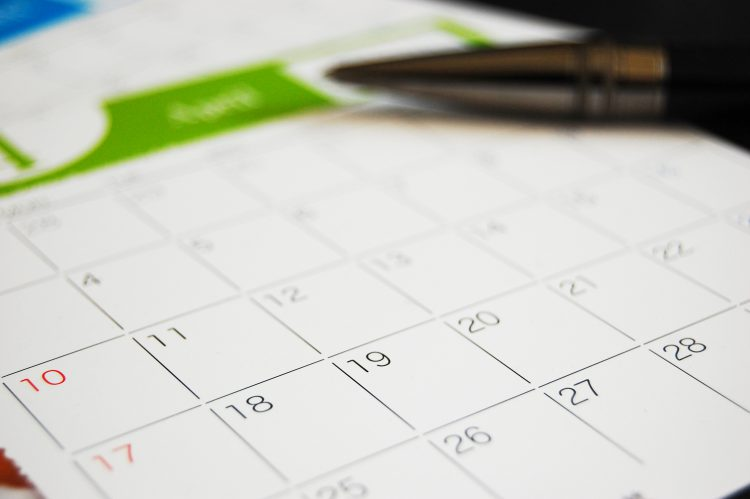無料体験レッスン アクセス 06-4397-0170
マイケルズイングリッシュスクール英会話 大阪天王寺 ミニレッスン
Boost your English by preparing for the Cambridge First Certificate
The Cambridge First Certificate of English (FCE) is an exam for upper-intermediate speakers of English, well-known and well-respected across the world.
How can preparing for the First help you boost your English? The FCE tests all four skills, Listening, Reading, Writing and Speaking. The exam preparation makes you practice and improve all four skills, thus boosting your overall level of English.
Let\’s check out a grammar exercise for the FCE! Test your level.
The passive voice
If you are an upper-intermediate speaker of English, you must be familiar with the passives by now, but let\’s have a quick review.
The passive is formed by using the verb \’to be\’ followed by the past participle. In the passive voice, the verb \’to be\’ is conjugated to whatever tense you need.
The security guard saw the shoplifter on the ground floor. –> The shoplifter was seen on the ground floor. (was = past simple)
He is following her. –> She is being followed. (is being = present continuous)
He will catch her soon. –> She will soon be caught (will be = future)
When is the passive used?
It is used both in speech and writing, when
- we don\’t know who or what did something
My bike\’s been stolen (= someone has stolen my bike, but I don\’t know who)
The lock has been forced (= someone has forced the lock, but I don\’t know who)
- the action is more important than who did it:
The first computer was invented in the early 20th century.
- it is obvious who or what did something:
The thief\’s been arrested.
We can add the \’agent\’ (who or what did an action) by using by + person/thing if this information is important:
The runaway robber was caught by the highway patrol.
Verbs with two objects
Sometimes an active verb has two objects. In this case, either object can be the subject of a passive sentence:
I was given some information
Some information was given to me
To have something done
When we ask someone else to do something for us, we often use the structure to have something done. It is not usually necessary to say who did the action.
The president had the client picked up from the airport (by his driver)
(= The president\’s driver picked up the client from the airport)
I had my hair cut.
I\’m having my bathroom refurbished (= the decorator is refurbishing my bathroom)
I need to have my car fixed (= I need the garage to fix my car).
In informal speech, we often use \’get\’ instead of \’have\’:
I got my hair cut.
Let\’s put it in practice!
Complete these sentences with the correct form of the verbs in brackets.
- Hello, I was _________ (give) your name by a colleague.
- Business is _______ (do) through networking and meeting people.
- A contract, or a job, can be _____ (win) or ______ (lose) on first impressions.
- If you\’ve been _________ (invite) out to a business dinner, it\’s best to look smart.
- Most of my work is ______ (do) on the phone and by email.
- Where I work, employees can be ________ (sack) for being late.
Fill in the gaps with the correct form of the verbs in brackets:
e.g.: I thought those chairs were broken. –> I\’ve had them mended (have/mended)
- Your bike\’s got a flat tyre! –> Oh, you\’re right. I\’ll ____________ (have/fix) at the cycle shop.
- This carpet\’s filthy. –> We must ___________ (have/clean)
- What\’s happened to your hair? –> I _____________ (have/colour)
- I don\’t like this room. It\’s too dark. –> I agree – we should ______________ (have/redecorate)
- These jeans are much too loose. –> Yes, you need ________________ (have/take in)
- What a beautiful garden! –> Thank you. We _____________ (have/design) by an expert.
- Where\’s the car? –> At the garage. We _________________ (have/service) before we go away.
See below for answers. If you have any questions, please let us know in the comments!
This was just one example of how studying towards the Cambridge First can help you boost your level. See you next time for another mini-lesson on Cambridge Exams.
Answers:
Exercise 1: 1) given 2) done 3) won / lost 4) invited 5) done 6) sacked
Exercise 2: 1) have it fixed 2) have it cleaned 3) \’ve (have) had it coloured 4) have it redecorated 5) to have them taken in 6) had it designed 7) \’re (are) having it serviced
References:
Louise Hashemi and Barbara Thomas, Grammar for First Certificate, Cambridge University Press 2003.
John Hughes and Jon Naunton, Business Result Intermediate Student\’s Book, Oxford University Press 2008.

